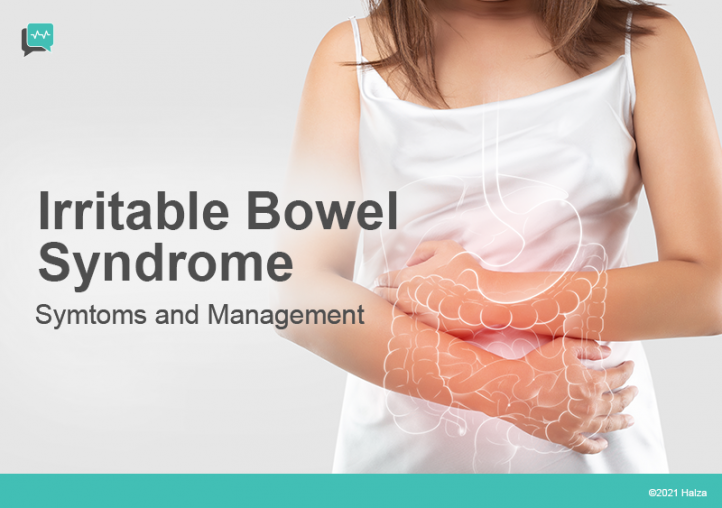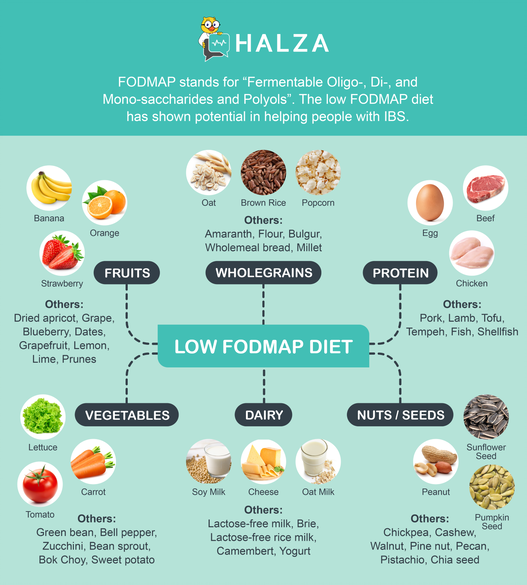IBS – A Common Problem

At least 10% of people in the U.S. and probably worldwide have Irritable Bowel Syndrome (IBS), an intestinal condition that causes abdominal pain, constipation, and diarrhea.
IBS does not lead to intestinal damage or cancer, but it does have a big impact on quality of life. People with IBS often need to plan their day around knowing where the nearest restroom is. Worried about having to rush to the bathroom, they might avoid being around friends or colleagues for extended meals. The pain can be debilitating and disrupts housework, time with family or relaxing.
What are the symptoms of irritable bowel syndrome?

The main IBS symptoms are,
Abdominal pain:
- Cramp-like or sharp
- Relieved by a bowel movement
Diarrhea:
- Frequent loose or watery stools
- Urgency, especially after meals
- Diarrhea might be mixed with mucus
- The bowel movement might feel incomplete
Constipation:
- Can be intermittent, with periods of constipation mixed with periods of regular bowel movements
- Hard, small stools
- Feeling like the rectum is not empty, even if it is
Mixed diarrhea and constipation:
- Infrequent bowel movements
- Bowel movements produce diarrhea
- Bowel movements occur during the daytime or after meals. Nighttime bowel movements are rare
Other symptoms include bloating, gas, and burping. Many diseases and conditions have similar symptoms. To be sure that your symptoms are from IBS and not from a more serious condition, it is important to see your health care provider for a diagnosis.
Can irritable bowel syndrome be cured?

Currently there is no cure for IBS, but it can often be managed or minimized once the symptom triggers are identified. Keeping a daily diary or chart will show the correlation of symptoms with food, stress, and anything else suspected of causing symptoms. The most common symptom triggers are stress and certain foods.
Is there a specific IBS diet?

Because everyone with IBS has their own food triggers, there is no one-size-fits-all IBS diet. However, certain types of food are more likely than others to cause symptoms. These include:
Foods with lactose: In someone who is lactose-intolerant, eating foods with lactose can aggravate IBS symptoms. Lactose is found in milk and in foods containing milk, yogurt, or cheese. If eliminating these foods, it is important to find an alternate source of calcium.
Foods that increase gas: Examples include cabbage, broccoli, cauliflower, Brussels sprouts, beans, onions, celery, carrots, Brussels sprouts, wheat germ, and fizzy drinks.
Foods high in fructose: All types of fruit contain the sugar ‘fructose’ in varying amounts. High fructose fruits include apples, pears, and dried fruits. Lower fructose fruits include berries and citrus fruits. Fructose is found in many processed foods.
Certain non-sugar sweeteners: Sweeteners such as sorbitol, xylitol, and mannitol can cause diarrhea. These sweeteners are often found in foods, beverages, and chewing gum advertised as “sugar-free” or “lite”.
By keeping a symptom/food/stress diary, it is easy to decide which foods to systematically eliminate for a short time to see if symptoms improve. However, it is important not to eliminate entire categories of foods without consulting a health care provider or nutritionist. Eliminating certain types of foods without replacing the nutrients can lead to nutritional deficiencies.
Other suggestions include:

- Follow a low “FODMAP” diet. FODMAP stands for “Fermentable Oligo-, Di-, and Mono-saccharides and Polyols”. An exhaustive list of low FODMAP foods can be easily found online.
- Drink water. Staying hydrated is especially important for people with IBS.
- Increase fiber. Eating foods high in fiber can be helpful to people with constipation, but it is important to start with small amounts and work up to larger servings. Foods high in fiber include berries, whole grains such as quinoa, brown rice, and oatmeal, green leafy vegetables, popcorn, dried apricots, prunes, dates, sunflower seeds, and sweet potatoes, among many others. Psyllium, a powder found in most pharmacies or supermarkets, is a way to add fiber in a controlled manner.
How should people with irritable bowel syndrome manage their stress?
Everyone manages stress differently. Some commonly used methods include exercise, yoga, meditation, and hypnosis. Counseling can also be very effective, particularly cognitive behavioral therapy, individual or group psychotherapy, or support groups.
Which medicines are used in IBS treatment?

Medicine is usually reserved for people who have tried non-medicinal therapies such as adjusting the diet, exercising, and learning to better manage stress. Medicine cannot cure IBS, but it can help with IBS symptoms.
Recommended medicines include:
Anticholinergic or antispasmodic medication: These help to reduce irregular contractions of the colon and severe cramping. They work best if you know when you are likely to have symptoms and can take them preventatively.
Antidepressants: Tricyclic agents (TCAs). At low doses, TCAs can reduce pain or the perception of pain. In addition, they slow down the passage of food through the intestines, which is helpful for people whose IBS mainly causes diarrhea.
Selective serotonin reuptake inhibitors (SSRIs): SSRIs are recommended for people who have both IBS and depression.
Anti-anxiety medication: Most anti-anxiety medication are addictive and should be used only for short periods of time. They can be helpful if one is going through a particularly stressful period leading to an increase in IBS symptoms.
Anti-diarrheal medication: Anti-diarrheal medication slows down intestinal contractions, which slows the movement of stool through the large intestine. The extra time allows the body to reabsorb water and produce solid stool.
Antibiotics: Some people with IBS do benefit from treatment with antibiotics, but the role that antibiotics can have in general in IBS is not entirely clear.
Laxatives: Laxative medication can help with constipation but can also cause bloating or gas. Polyethylene glycol seems to cause the fewest side effects but should be started at a low dose and increased as tolerated.
Other prescription medication: Newer medicines are still undergoing long term safety testing and can be expensive.

Herbal supplements: Probiotics (beneficial bacteria that are part of a healthy digestive system), chamomile tea, primrose oil, and/or fennel seeds are sometimes recommended. Scientific evidence of their efficacy has been mixed. Wormwood, comfrey and Iberogast are also sometimes recommended. However, reports have linked them to liver damage.
Talk to a health care provider
 Some people feel too embarrassed to talk about diarrhea, constipation, and gas. But your health care provider is actually interested in your bowel movements and is completely comfortable discussing them. If you have IBS, they will work with you to manage your symptoms. They will also check to make sure that your symptoms are a result of irritable bowel syndrome and are not a result of another condition. Win-win for all!
Some people feel too embarrassed to talk about diarrhea, constipation, and gas. But your health care provider is actually interested in your bowel movements and is completely comfortable discussing them. If you have IBS, they will work with you to manage your symptoms. They will also check to make sure that your symptoms are a result of irritable bowel syndrome and are not a result of another condition. Win-win for all!
How Halza Can Help:
Manage you and your family’s health easily with the Halza app!
Store, track & share all of your child’s medical records to have them with you, wherever you go. Monitor your child’s growth and vaccination schedule as well as upload reports and doctor’s notes all with the Halza app. QuickShare a complete overview of you or your child’s health with any attending doctor in seconds, during emergencies or whenever you need.
Simplify your health journey and download Halza now!
Sources: About IBS